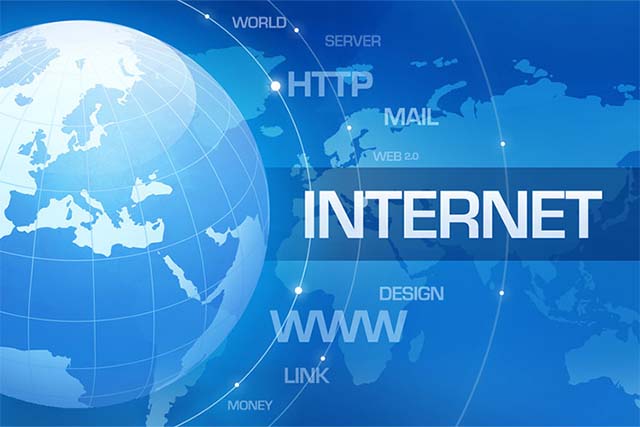Today’s modernizations have been extremely beholden tolaunch of the internet and its applications which have provided the individuals and organizations with the easiest routine in their daily lives. In fact, the internet has strongly effected the face of traditional lives of people, turning them completely into the modern and dissimilar lifestyle with its developments. All sectors including, health, agriculture, economy, education, politics, media and etc., accelerated their development through internet especially in developed and developing countries. Instead of the newspapers, people use the internet to access the e-news which provides with not only the newspapers but also various different news channels from all over the world. Even the live video news from the news channels can be accessed through the net, overpowering the other media, even including the television.
The first sector that greatly benefited from internet are imports and exports businesses andmarketing companies in Afghanistan. Recently,several online services founded that also opened new outlooks for domestic products bridging between Afghan producers and potential customers throughout the world. Thus, several other tools developed by newly graduated students to help public and private sectors easetheir fiscal management throughout country. Thus, the need to advertise the products of any business companies are no more a major problem, as the companies can develop their own website and information regarding the products to convince the customers with their works. Internet is indeed the motherof advancement in the modern era, enabling the common people to sit at home and rule the world.
The second sector that can effectively benefit from internet is health sector, telemedicine provides a number of advantages for doctors and other medical staff. In the Third World, in particular, access to appropriate expertise for an accurate diagnosis and the treatment of illnesses is often difficult to obtain. While this is particularly true in rural and remote areas, it applies to many urban areas as well. Computerized networks facilitate access to accurate and up-to-date information, enable long-distance training and consultation, and improve the administration of the health sector. Online initiatives addressing health and medicine promote networking among hospitals and health professionals worldwide and provide updates on current medical research.
On the other hand, many health problems in the Third World don’t require high-tech solutions. Medical experts say that many of their patients could be cured by such simple remedies as access to clean water. In fact, the lack of clean water and poor hygiene continue to be the biggest health challenges in today’s world; only half of the world population has access to safe water. Moreover, although information and education can raise people’s awareness of the problems stemming from poor hygiene and unsafe water, information in itself is an insufficient remedy if people lack the means to implement what they learn.
The third sector, which strongly linked to internet is education, as it was in universities and research institutes that electronic networks were initially developed. Such networks have since evolved from the sharing of research findings among scientists and scholars to access to libraries, schools, and universities worldwide. Not only can one find interesting reference material and valuable resources, but increasingly one can also download books and journals, the Internet thus providing a wealth of knowledge at ones’ finger tips. The Internet also enables alternative teaching methods through virtual classrooms and long-distance education, thus allowing more people to receive education.
On the other hand, if there are no regulating measures it can also act as learning disruptions. In Afghanistan, estimated three million people are addicted in social media networks especially the school and university students. As soon as early morning students get up, they give priority to using face-book; If someone lose his monetary property, it possible to compensate but when he wastes a golden period of his age it is not possible to restore. If anybody wastes his childhood in face-book, he will not be able to acquire and build up character in future and will suffer all consequences. Similarly, if a student neglects his studies from day-to-day, no amount of hard labor before the examination will get him deeply through.
The other sector which extraordinarily benefits from internet is politics both in the developed and the developing countries. Because of rapid information flow through social media networks can imposeunwanted changes in a country that is why banned or curtailed in many countries. The Arab spring and middle east revolutions are just some of examples which occurred in recent years. However, some of these measures are related to some of the inherent contradictions of the modern world order, namely the transnational flows of people, goods, and information in contrast to political administration within the boundaries of nation states.
Overall, Internet can serve as a powerful medium for the achievement peace, economy, and socio-cultural improvement of any society.Experts believe that wider connectivity within developing countries improves the infrastructure of key information in these countries, thereby it creates a positive improvement in political economy. In fact, Internet and other telecommunications related technologies should be considered as a national, strategic infrastructure tool. Developing such infrastructure tool strategies is vital for developing countries, especially Afghanistan. On the other hand, we should publicize the differences between factual and virtual world, especially the youthswho are busy in school or university studies. it should be used in a way that can improve economic efficiency, governance, education, health and quality of life, specifically in the margin parts of country.
Home » Opinion » Role of Internet in the Modern Era
Role of Internet in the Modern Era
| Mohammad Zahir Akbari

